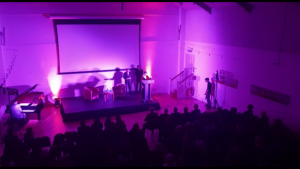Call for attendees and poster presenters
We are delighted to announce the programme and our call for attendees and poster presenters at the PG & ECR conference ‘Keeping it in the Family: Exploring familial tension and rupture in the ancient and early-medieval Mediterranean’ at the University of Reading on 24-5/4/19.
This event and the lack of registration fee is made possible by the generous support of the Past & Present Society and Society for the Promotion of Hellenic Studies in providing accommodation and travel bursaries to speakers, and the Department of Classics at the University of Reading.
Posters
We invite posters that respond to our central question, or to the themes that emerge from our papers as listed below. Those working on chronological periods or regions outside our initial remit are especially welcomed to invite comparative discussion, as are those who are unable to attend the entire event.
Attendees
A limited number of places for attendees are available for postgraduates and early-career researchers working in all related disciplines.
Needs-based Bursaries
Thanks to the generosity of the Classical Association, we have 7 travel bursaries of maximum £60 to support attendees or poster presenters.
Attendees or poster presenters who wish to apply for a travel bursary should write to us at readingancientfamily2019@gmail.com by 02/4/19 with a response to the following criteria:
- a) Their current funding status (i.e. funded/unfunded doctoral position, post-doc, sessional lecturer, teaching fellow etc.)
- b) Alternative sources of conference funding to which they have applied, or indication of why they are ineligible.
- c) If they have any extenuating circumstances that make conference attendance more expensive.
Decisions will be given by 4/04/19.
Poster presenters who do not wish to apply for a travel bursary can register by email on a first-come-first served basis until 19/4/19 listing their name, affiliation and potential title.
Attendees who do not wish to apply for a travel bursary can register by email on a first-come-first served basis until 22/04/2019 listing their name and affiliation.
Becca Grose, Doukissa Kamini & Rebecca Rusk (organising committee)
Keeping it in the Family? Exploring familial tension and rupture in the ancient & early-medieval Mediterranean (PG and ECR Conference)
24-25th April 2019, University of Reading – London Road Campus
Conference Programme
Day 1 (Wednesday 24th April)
10.00-11.00: Registration
11.00-12.30: First session
Taboos within the Family Structure (chair: Andreas Gavrielatos)
Olive, Peter (Royal Holloway University of London): Re-centring debate about the Danaïds’ plea in Aeschylus’ Supplices.
Watson, Joe (Durham University): Inscribing Incest: Byblis’ Love Letter to Caunus and Ovid’s Fear of Taboo in Metamorphoses 9.
Kirsch, Stephanie (University of Bonn): Taboo to topic? – Small scale violence against children and disciplina in the Roman family from the 2nd century BCE till 2nd century CE.
12.30-13.20: Lunch break
13.20-15.10: First keynote speech & response
Kate Cooper (RHUL): When Fathers Fail: Gender, cultural change and family dynamics in late antiquity
Response: Christa Gray (Reading)
(including 14.20-14.40 coffee & cake pause)
15.20-16.50: Second session
Interfamilial Conflict, Succession and Inheritance (chair: Rebecca Rusk)
Paprocki, Maciej (Universität München): Apollo, Kronos’ avenger? Divine intergenerational conflicts in light of ‘Kronos’ curse’.
Martorana, Simona (Durham University): Telemachus, Penelope’s puer: (de-) legitimation, precarious masculinity and familial liminality in Ovid’s Heroides 1.
Shields, Katharine (University College of London): “Do not kill anyone of [your] family, it is not good.” Succession, inheritance, and legal language in the Proclamation of Telipinu.
16.50-17.15: Coffee Break
17.15-19.05: Second keynote speech & response
Edith Hall (KCL): Are house slaves family? Seeking Illumination from Artemidorus’ Interpretation of Dreams
Response: Emma Aston (Reading)
(including 18.15-18.35 wine & nibbles pause)
19.05-20.00 Continued wine reception and poster session.
20.00: Dinner
Day 2 (Thursday 25th April)
09.00-10.30: Third session
Family on the Edge: Perceptions and Pressure of Family Image (chair: tbd.)
Kostecka, Katarzyna (University of Warsaw): Dealing with family failure – unsuccessful kin in the Epinician Odes of Pindar.
Sandon, Tatjana (University of Edinburgh): Concubina mea amantissima. The role of concubinae in Roman family and society in light of the epigraphic evidence.
Morassi, Davide (University of Oxford): Tough love: fatherhood as a metaphor for political and military leadership.
10.30-11.00: Coffee Break
11.00-12.30: Fourth session
Wives and Mothers: Expectations and Challenges (chair: tbd.)
Golay, Charlotte (University of Lausanne): Reproductive expectations: Fear and tension around the production of children within the Hellenistic couple.
Thoma, Marianna (University of Athens): Women and intergenerational conflict in Greco-Roman family: “If she spends another month with me like this, I will throw myself into the sea.” 1 (P.Petaus 29,8-10).
Patzelt, Maik (University of Sheffield): The aftermath of familial rupture: constructing and contesting the widow’s identity in late antiquity.
12.30-13.30: Lunch Break
13.30-15.00: Fifth session (chair: tbd.)
(Re-)Constructing Families
Clarke, Anactoria (King’s College London): Mantic lineage: Constructing hereditary transmission of prophetic skills.
De Luca, Gaia (École des Hautes Études en Sciences Sociales, Paris; Università Orientale, Naples): Conflicting citizenship within the family: a Rhodian example.
15.00-16.30: Roundtable Chair: Barbara Goff (Reading)
Title: tbd.
Kindly supported by the Past & Present Society, the Classical Association, the Society for the Promotion of Hellenic Studies and the University of Reading Classics Department

















